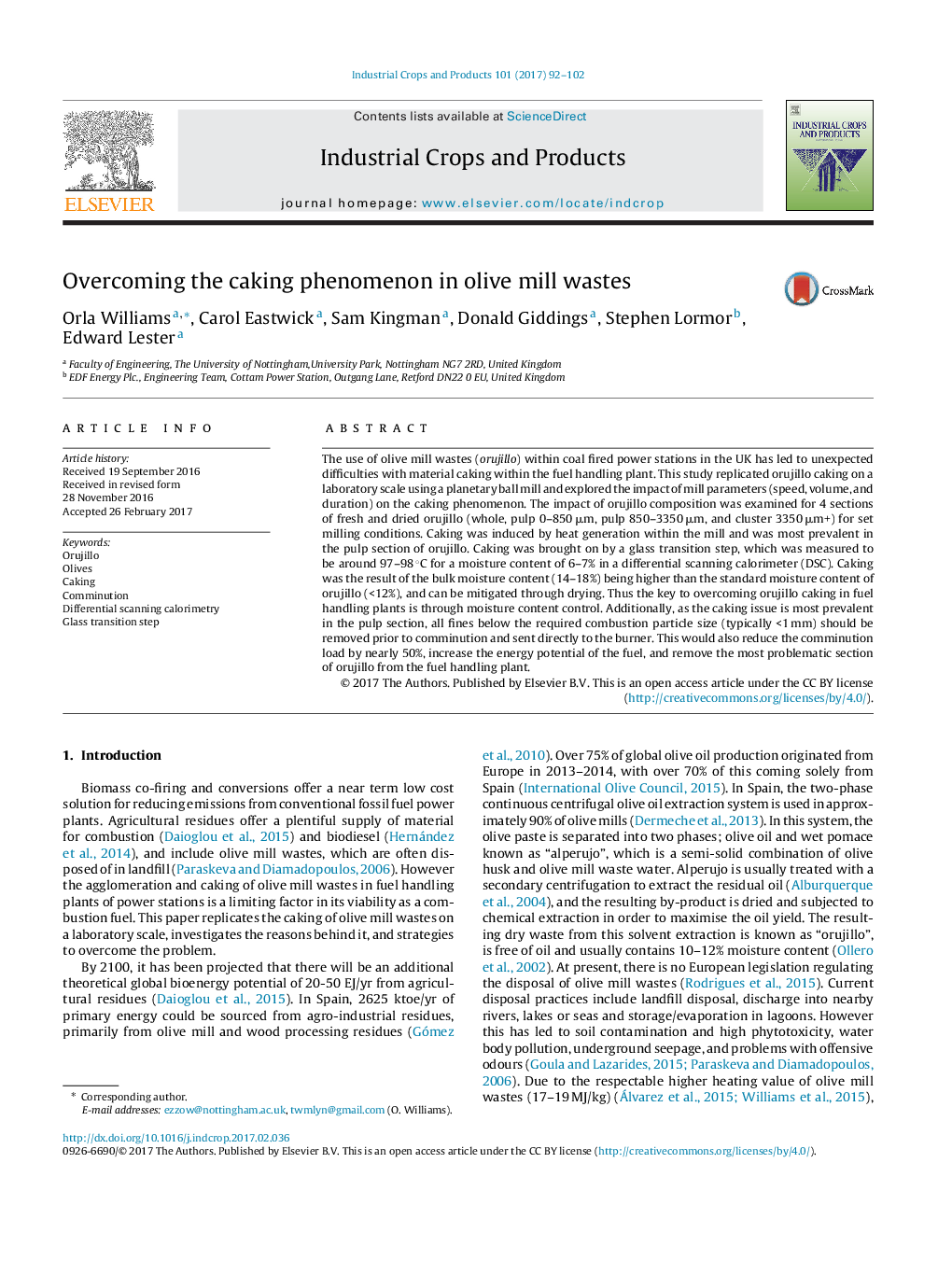| کد مقاله | کد نشریه | سال انتشار | مقاله انگلیسی | نسخه تمام متن |
|---|---|---|---|---|
| 5762136 | 1624809 | 2017 | 11 صفحه PDF | دانلود رایگان |
عنوان انگلیسی مقاله ISI
Overcoming the caking phenomenon in olive mill wastes
ترجمه فارسی عنوان
غلبه بر پدیده خم شدن در زباله های زیتون
دانلود مقاله + سفارش ترجمه
دانلود مقاله ISI انگلیسی
رایگان برای ایرانیان
کلمات کلیدی
موضوعات مرتبط
علوم زیستی و بیوفناوری
علوم کشاورزی و بیولوژیک
علوم زراعت و اصلاح نباتات
چکیده انگلیسی
The use of olive mill wastes (orujillo) within coal fired power stations in the UK has led to unexpected difficulties with material caking within the fuel handling plant. This study replicated orujillo caking on a laboratory scale using a planetary ball mill and explored the impact of mill parameters (speed, volume, and duration) on the caking phenomenon. The impact of orujillo composition was examined for 4 sections of fresh and dried orujillo (whole, pulp 0-850 μm, pulp 850-3350 μm, and cluster 3350 μm+) for set milling conditions. Caking was induced by heat generation within the mill and was most prevalent in the pulp section of orujillo. Caking was brought on by a glass transition step, which was measured to be around 97-98 °C for a moisture content of 6-7% in a differential scanning calorimeter (DSC). Caking was the result of the bulk moisture content (14-18%) being higher than the standard moisture content of orujillo (<12%), and can be mitigated through drying. Thus the key to overcoming orujillo caking in fuel handling plants is through moisture content control. Additionally, as the caking issue is most prevalent in the pulp section, all fines below the required combustion particle size (typically <1 mm) should be removed prior to comminution and sent directly to the burner. This would also reduce the comminution load by nearly 50%, increase the energy potential of the fuel, and remove the most problematic section of orujillo from the fuel handling plant.
ناشر
Database: Elsevier - ScienceDirect (ساینس دایرکت)
Journal: Industrial Crops and Products - Volume 101, July 2017, Pages 92-102
Journal: Industrial Crops and Products - Volume 101, July 2017, Pages 92-102
نویسندگان
Orla Williams, Carol Eastwick, Sam Kingman, Donald Giddings, Stephen Lormor, Edward Lester,
